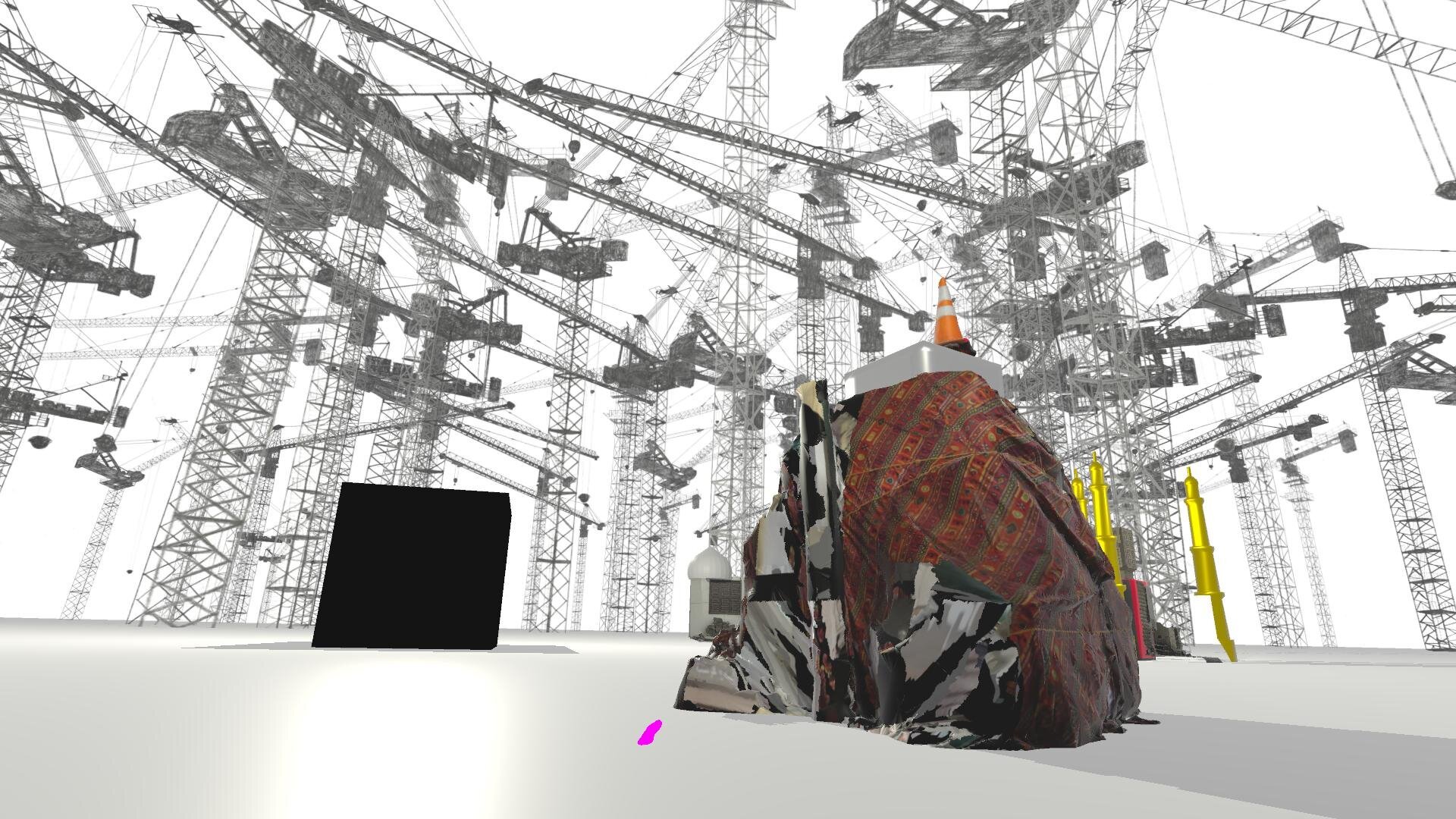Asma Kazmi, POLLINATED CITY at the BI–CITY BIENNALE of URBANISM/ARCHITECTURE, SHENZHEN CHINA
Lecture | April 26 | 3:30-5 p.m. | On Zoom
Featured Speaker: Asma Kazmi, Assistant Professor of Performance Art, Department of Art Practice, UC Berkeley
Moderator: Atreyee Gupta, Assistant Professor of Global Modern Art and South and Southeast Asian Art, History of Art Department
Sponsors: Institute for South Asia Studies, Sarah Kailath Chair of India Studies, South Asia Art Initiative, Department of History of Art, Department of Art Practice, Center for Middle Eastern Studies
The South Asia Art Initiative at UC Berkeley is delighted to launch Crisis and Creativity: Artists Speak Series, a speaker series that addresses provocative and generative intersections between creative processes and societal, cultural, and environmental crises. The Series features conversations among artists, art professionals, curators, and scholars.
The sixth event in this series features a conversation between visual artist and Assistant Professor of Performance Art at UC Berkeley, Asma Kazmi and Assistant Professor of Global Modern Art and South and Southeast Asian Art in the History of Art Department, Atreyee Gupta .
______
DATE: Tuesday, April 26, 2022
TIME: 3:30pm Berkeley | 11:30pm London | 3:30am Lahore | 4am New Delhi | Calculate Your Local Time
REGISTER ONLINE
This event will also be live streamed on the Institute's FB page: ISASatUCBerkeley
______
Speaker Bios
Asma Kazmi is a research-based artist who combines virtual and material objects to explore simultaneity — a tug of more than one time and place. Her work involves long term engagement with cities, architecture, plants, animals, stones, and other matter to locate vestiges of relations forged by the legacies of colonialism and post-colonial contexts.
Combining visual and textual detritus from western and non-western historical manuscripts, photographs, archival material, fragments of locations, and mixing them with her own fabulations, Kazmi tells intertwining stories about Islam, Muslim culture, complex trade routes, global flows of people and commodities, labor, colonial and indigenous knowledge systems, and interspecies entanglements.
Kazmi was born in Quetta, a city in Pakistan, near the border with Afghanistan. She works between the US, India, Pakistan, China, Europe, and the Middle East to create installations that are legible in various cultural contexts..
Atreyee Gupta is Assistant Professor of Global Modern Art and South and Southeast Asian Art in the History of Art Department at the University of California, Berkeley. She was trained at the University of Minnesota and the Faculty of Fine Arts, Maharaja Sayajirao University of Baroda, India. Her area of expertise is Global Modernism, with a special emphasis on the global aesthetic and intellectual flows that have cut across Asia, Africa, the Middle East, and Latin America from the twentieth century onwards. Her research and teaching interests cluster around visual and intellectual histories of twentieth-century art; the intersections among the Cold War, the Non-Aligned Movement, and art after 1945; new media and experimental cinema; and the question of the global more broadly. Gupta is presently completing Non-Aligned: Decolonization, Modernism, and the Third World Project, India ca. 1930–1960, a book on the artistic and intellectual resonances of the Non-Aligned Movement during the Cold War era and the interwar anti-colonial Afro-Asian networks that preceded it. Her coedited books include Postwar – A Global Art History, 1945–1965 (with Okwui Enwezor) and Global Modernism/s: Infrastructures of Contiguities, ca. 1905–1965 (with Hannah Baader and Patrick Flores). Gupta’s essays have appeared in edited volumes, exhibition catalogs, and journals such as Art Journal, Yishu, and Third Text.

